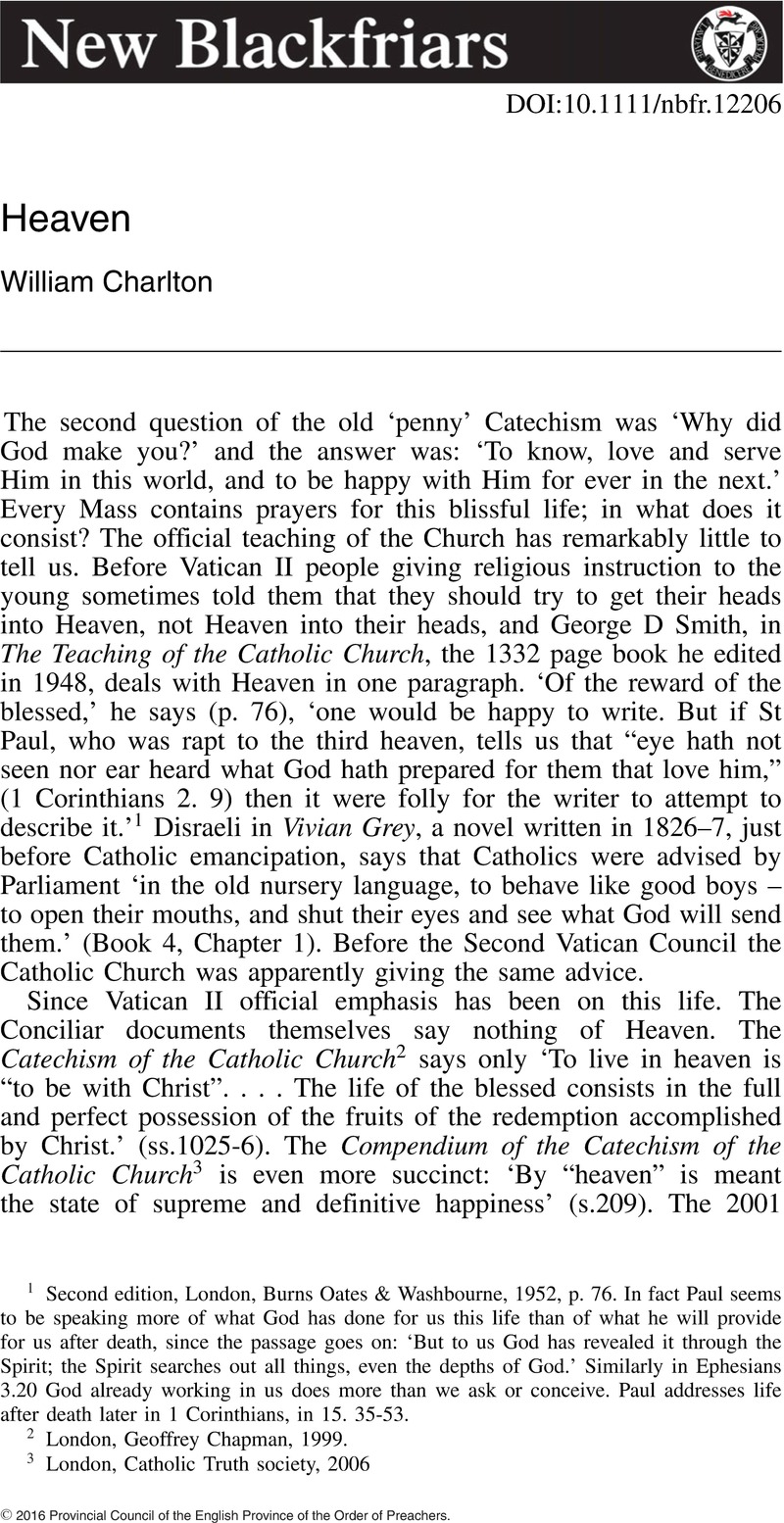
1 Second edition, London, Burns Oates & Washbourne, 1952, p. 76. In fact Paul seems to be speaking more of what God has done for us this life than of what he will provide for us after death, since the passage goes on: ‘But to us God has revealed it through the Spirit; the Spirit searches out all things, even the depths of God.’ Similarly in Ephesians 3.20 God already working in us does more than we ask or conceive. Paul addresses life after death later in 1 Corinthians, in 15. 35-53.
2 London, Geoffrey Chapman, 1999.
3 London, Catholic Truth society, 2006
4 And anyone tempted to yield to it should first read Fanny Penquite by Edith Saunders, London, Oxford University Press, 1932.
5 Hume, Dialogues Concerning Natural Religion Part ii.
6 The Fall and the Ascent of Man, Lanaham, Maryland, University of America Press, 2012Google Scholar.
7 The Physical, the Natural and the Supernatural, London, Sheed and Ward, 1998, Chapter 8Google Scholar.
8 ‘The Real Presence’, New Blackfriars 82, 160-174, 2001CrossRefGoogle Scholar
9 Denzinger Schonmetzer 1331.